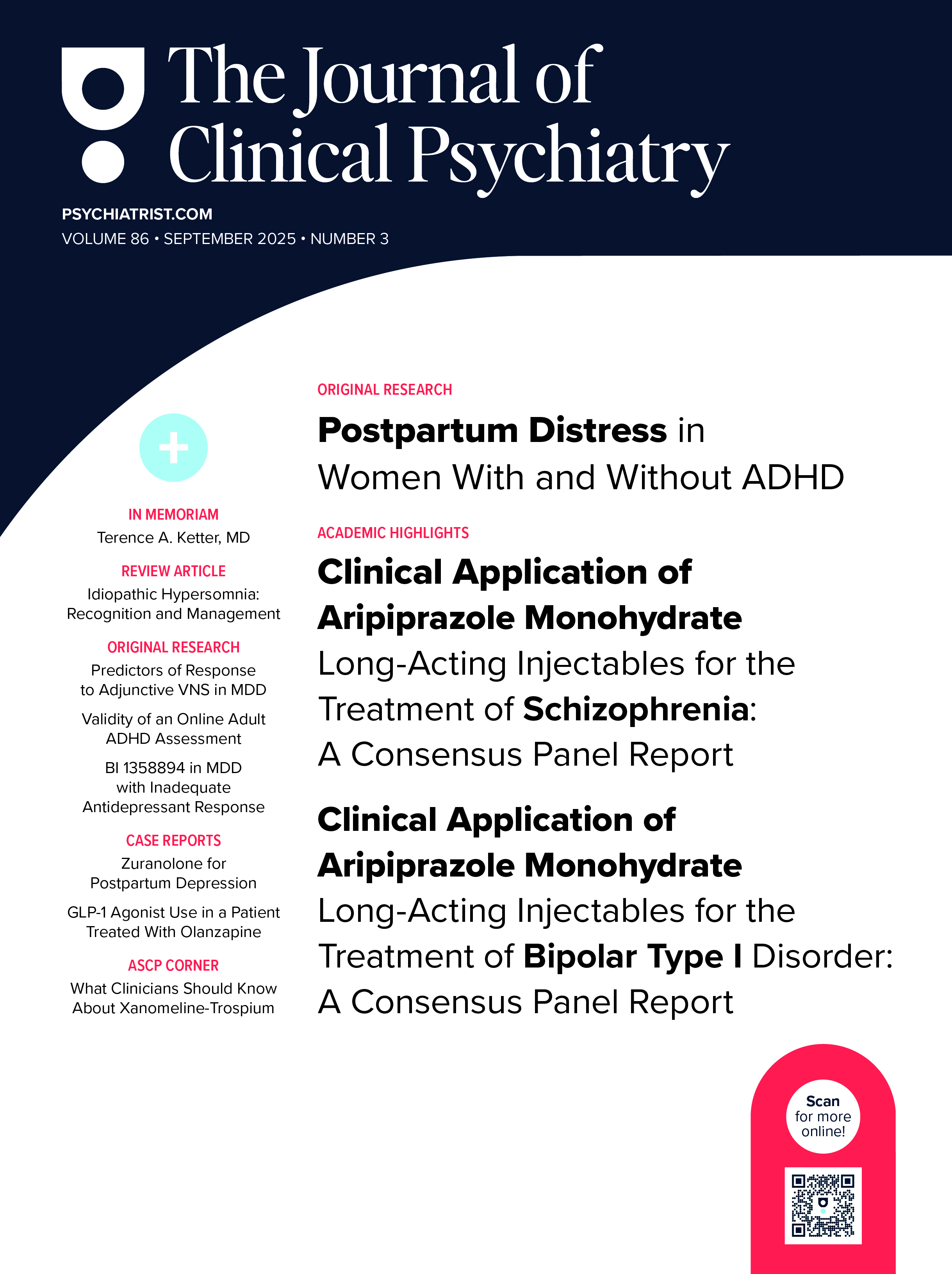Objective: To estimate the number needed to treat to harm (NNTH) for discontinuation due to adverse events with atypical antipsychotics relative to placebo during the treatment of bipolar depression, major depressive disorder (MDD), and generalized anxiety disorder (GAD).
Data Sources: English-language literature published and cited in MEDLINE from January 1966 to May 2009 was searched with the terms antipsychotic, atypical antipsychotic, generic and brand names of atypical antipsychotics, safety, tolerability, discontinuation due to adverse events, somnolence, sedation, weight gain, akathisia, or extrapyramidal side effect; and bipolar depression, major depressive disorder, or generalized anxiety disorder; and randomized, placebo-controlled clinical trial. This search was augmented with a manual search.
Study Selection: Studies with a cumulative sample of ≥ 100 patients were included.
Data Extraction: The NNTHs for discontinuation due to adverse events, somnolence, sedation, ≥ 7% weight gain, and akathisia relative to placebo were estimated with 95% confidence intervals to reflect the magnitude of variance.
Data Synthesis: Five studies in bipolar depression, 10 studies in MDD, and 4 studies in GAD were identified. Aripiprazole and olanzapine have been studied in bipolar depression and refractory MDD. Only quetiapine extended release (quetiapine-XR) has been studied in 3 psychiatric conditions with different fixed dosing schedules. For aripiprazole, the mean NNTH for discontinuation due to adverse events was 14 in bipolar depression, but was not significantly different from placebo in MDD. For olanzapine, the mean NNTHs were 24 in bipolar depression and 9 in MDD. The risk for discontinuation due to adverse events during quetiapine-XR treatment appeared to be associated with dose. For quetiapine-XR 300 mg/d, the NNTHs for discontinuation due to adverse events were 9 for bipolar depression, 8 for refractory MDD, 9 for MDD, and 5 for GAD.
Conclusions: At the same dose of quetiapine-XR, patients with GAD appeared to have a lower tolerability than those with bipolar depression or MDD. Due to flexible dosing, the risk for discontinuation due to adverse events in the treatment of bipolar depression, MDD, or GAD with other atypical antipsychotics could not be compared.
J Clin Psychiatry 2011;72(8):1063-1071
Submitted: July 15, 2009; accepted January 7, 2010.
Online ahead of print: October 19, 2010 (doi:10.4088/JCP.09r05535gre).
Corresponding author: Keming Gao, MD, PhD, 10524 Euclid Ave, 12th Fl, Cleveland, OH 44106 ([email protected]).
Members Only Content
This full article is available exclusively to Professional tier members. Subscribe now to unlock the HTML version and gain unlimited access to our entire library plus all PDFs. If you’re already a subscriber, please log in below to continue reading.
Please sign in or purchase this PDF for $40.00.
Already a member? Login





